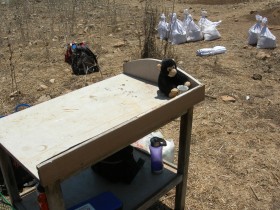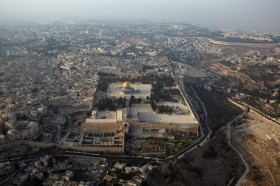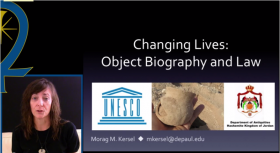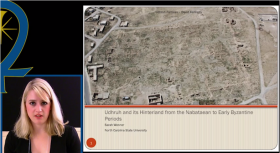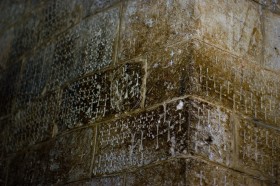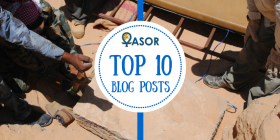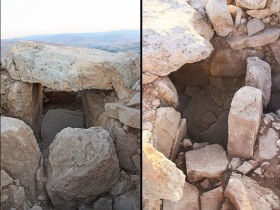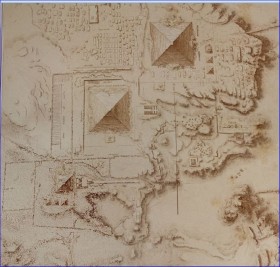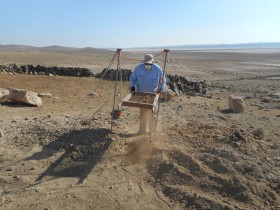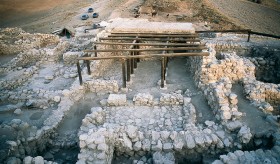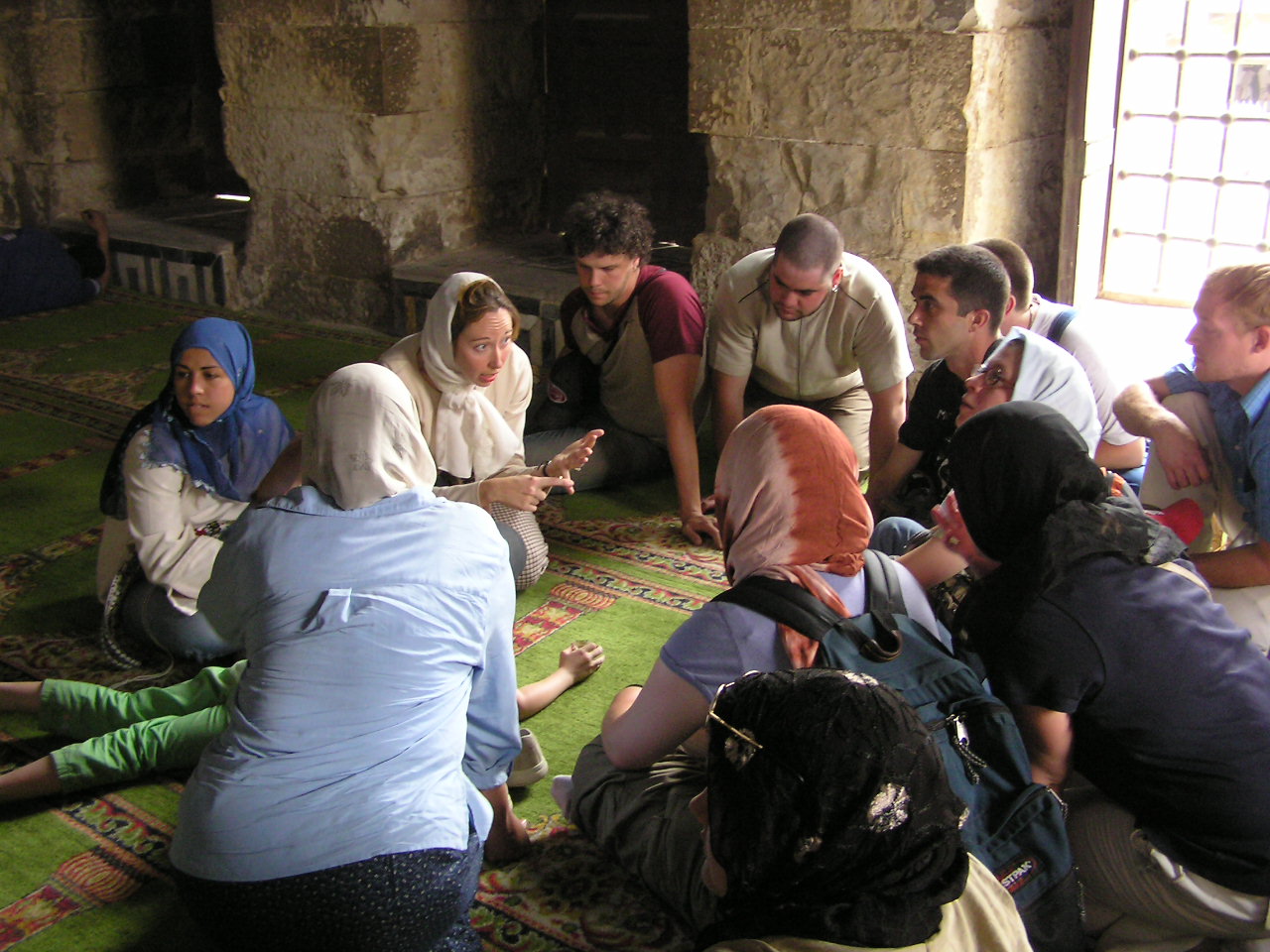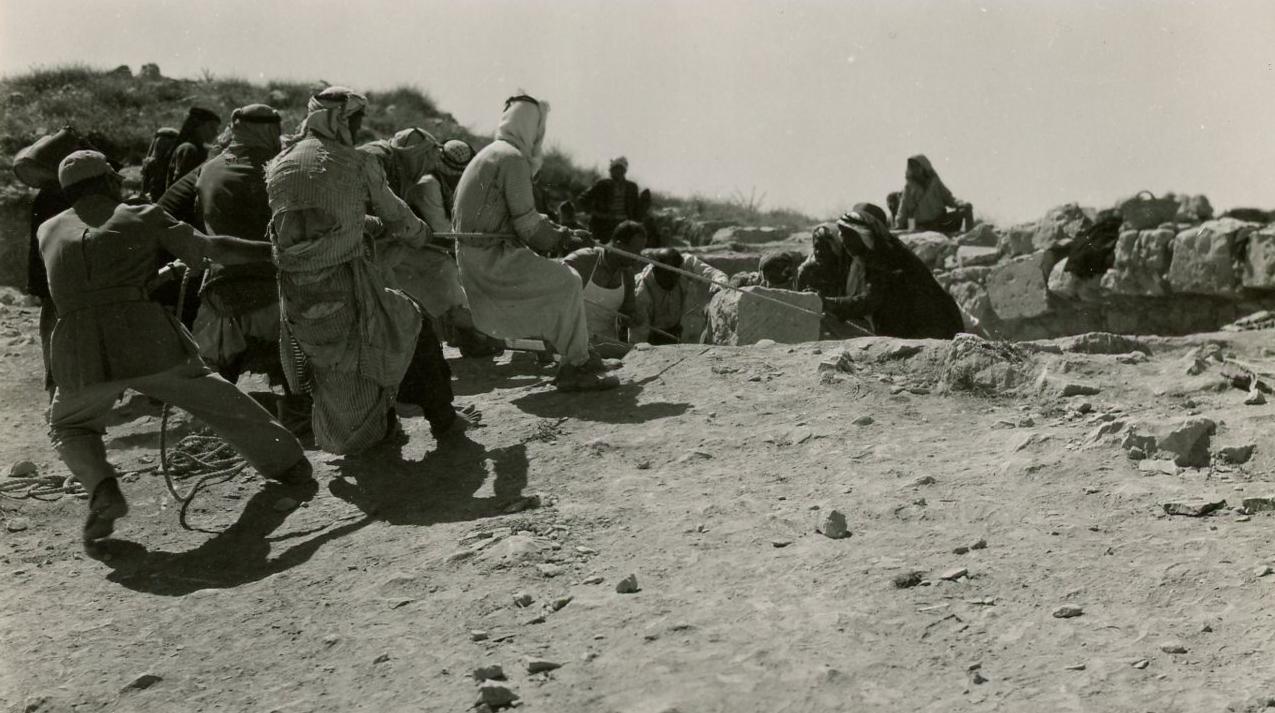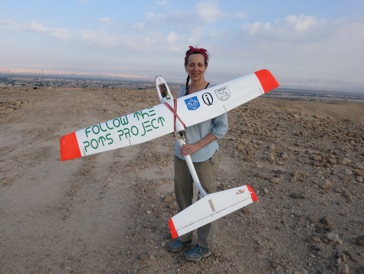What’s in your dig bag, Yorke Rowan?
In our “What’s in your dig bag?” series, we asked working field archaeologists what they carry with them out in the field. We wanted to know what gear they love and what items might be unique to them. I keep changing hats; one year I have […]
The Return of David and Solomon?
Buried beneath the houses of Silwan, a small neighborhood south of the walls of the Old City of Jerusalem, lie the remains of four thousand years of human history. As elsewhere in the Middle East, in Silwan history is counted by ages […]
Changing Lives: Object Biography and Law [Video]
At theASOR Annual Meeting, Morag Kersel presented her paper, “Changing Lives: Object Biography and Law.” She did so during the Object Biography for Archaeologists: A Practical Workshop. The workshop was not just about story-telling, […]
Udhruh and Its Hinterland during the Nabataean and Roman Periods [VIDEO]
In ca. 300 CE, the Roman army built a legionary fortress for the legio VI Ferrata at the site of Udhruh, 15 km east of Petra in southern Jordan. The site’s long history began prior to the construction of the fortress, […]
Graffiti—the ‘Selfies’ of the Ancient Near East?
Few phenomena embody the current zeitgeist like the ‘selfie.’ Glances through Facebook or Instagram reveal selfies in abundance. Cameras on today’s smart phones, […]
Top 10 Posts
As we begin, we’d like to thank all of our Friends of ASOR (and lurkers) who come back to the ASOR Blog to read post after post. Keep reading to see the top 10 posts. We hope thatwas as amazing for all of you as it was for us. Here’s tobeing even […]
The Early Bronze Age I Site and Necropolis of Jebel al-Mutawwaq, Jordan
Much of the archaeological landscape of the ancient Near East is rapidly disappearing. This is especially true for pre and protohistoric sites that lack the imposing size of tells. Features such as dolmens, aboveground […]
Karak Resources Project:Excavation at Mudaybi, Jordan
By: J. Dwayne Howell, Professor of Old Testament and Hebrew, Campbellsville University Mudaybi, Jordan is an Iron Age II fortification located on the Fajj al-Usaykir on the Karak plateau. It is being excavated by the Karak Resources Project, under the leadership of Dr. Jerry Mattingly (Johnson University). The project began in 1995 and there have been […]
The Land Between the Two Rivers: Early Israelite Identities in Transjordan
By: Thomas Petter, Associate Professor at Gordon-Conwell Theological Seminary Were there Israelites in Transjordan in the early Iron Age? How would we know from archaeology? Or if not Israelites (and Moabites), whom should we be looking for? The task of plotting identities in the past is tricky business. It becomes even more problematic when opinions diverge […]
Choosing Islamic Archaeology, Mentoring and Directing, and Looking to the Future
EnglishEnglishFrenchPowered by TranslateBy: Dr. Bethany J. Walker Annemarie Schimmel Kolleg, University of Bonn When I was asked to contribute to ASOR’s blog posts celebrating women in Middle Eastern archaeology, I was honored and perplexed. My personal story is not particularly special or interesting, in my eyes. I am happy to share it, however, as it […]
ASOR Archives: The Dibon Excavation Collection
Did you know that the ASOR Archives documents over a century of American archaeological research in the Near East? The archive holds about forty collections, including the papers of past ASOR presidents, photograph collections, personal papers, and excavation collections. One of these is the Dibon Excavation Collection, which contains documents and photographs from ASOR’s dig […]
Surviving Collapse: Khirbat Iskandar, Jordan in the EB IV Period
By: Suzanne Richard, Professor Department of History and Archaeology; Department of Theology Director, The Collins Institute for Archaeological Research and the Archaeology Museum Gallery at Gannon Calamity, upheaval, and dislocation, whether wrought by human disasters such as war or natural agents such as earthquake and climate change, eventually face all societies. But in an era of […]
Landscapes of the Dead
Landscapes of the Dead: Aerial and Pedestrian Site Monitoring at Fifa, an Early Bronze Age Cemetery on the Dead Sea Plain, Jordan By: Morag M. Kersel, Department of Anthropology, DePaul University The primary objective of the Landscapes of the Dead Research Project is to assess (through aerial photography and a pedestrian survey) the Early Bronze […]
Who Owns This Part of the Past? The Cultural Heritage of Tall al-`Umayri, Jordan in Jeopardy
By: Douglas R. Clark, Center for Near Eastern Archaeology, La Sierra University Is culturally significant land private or public property? What happens when a major, signature archaeological site is owned privately? Who owns this part of the past? How does one resolve competing claims of ownership and use? Numerous archaeological sites in Jordan are privately […]
Travels Through Time: Imagining Migration in the Early Aegean
As a student, I had travelled and excavated in other parts of the Middle East (Jordan and Lebanon) before, but had never visited Israel […]
Late Prehistoric Pastoral Exploitation of Arid Lands in Jordan: New Light from the Black Desert
By: Gary O. Rollefson Jordan’s Black Desert is a uniquely harsh and inhospitable place. It is a broad band of basalt that stretches across Jordan’s panhandle, running some 145 kilometers from Azraq to its northeastern edge on the Iraqi border, and 115 kilometers from the Syria in the north to Saudi Arabia in the south. […]
The Past Performative: Thinking through the Azraq Community Archaeology Project
By: Alison Damick and Ahmad Lash All individuals belong to multiple fluctuating communities. How can archaeology help inform, and learn from, different communities? In this abridged piece from Near Eastern Archaeology, Alison Damick and Ahmad Lash explore how archaeology has engaged with the many communities that live in the town of Azraq in eastern Jordan. […]
Joint Custody: An Archaeological Park at Neolithic Ghwair I, Jordan
ANE Today Editorial Introduction:* Ecotourism is quickly becoming a means for the public to appreciate archaeological sites, even in remote regions. We are pleased to present this article by Alan Simmons and Mohammad Najjar abridged from the latest edition of Near Eastern Archaeology on a case study from Jordan. By: Alan H. Simmons and Mohammad […]
